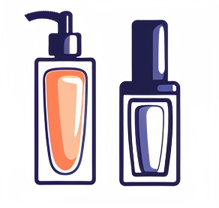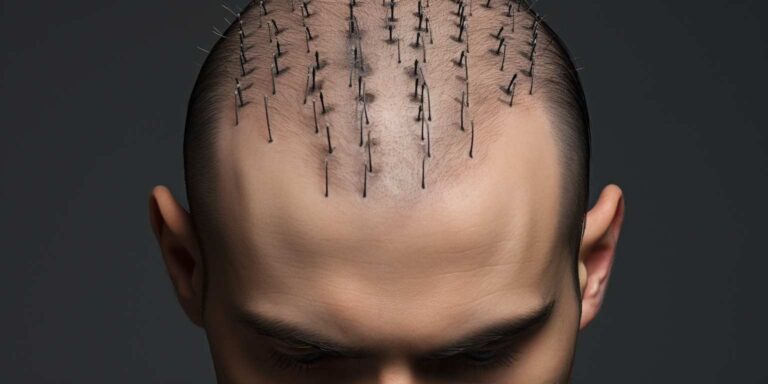The ultimate guide to ketoconazole shampoo for dandruff
Ketoconazole is an antifungal medication primarily used to treat fungal infections. When formulated into shampoo, it becomes a potent tool against dandruff caused by a fungus called Malassezia. This fungus is a common culprit behind many cases of dandruff and seborrheic dermatitis.
So, how does ketoconazole shampoo tackle dandruff? It works by targeting the root cause – the overgrowth of Malassezia fungus on the scalp. By inhibiting the growth of this fungus, ketoconazole effectively reduces dandruff flakes and relieves itching and inflammation.
One of the key benefits of ketoconazole shampoo is its effectiveness even in cases where other dandruff treatments have failed. This makes it a go-to solution for individuals struggling with persistent dandruff.
When using ketoconazole shampoo, it’s essential to follow the instructions provided by your healthcare provider or the product label. Typically, it’s recommended to use the shampoo two to three times per week for a specified duration, followed by less frequent maintenance use to prevent recurrence.
Now, let’s take a closer look at some important considerations when using ketoconazole shampoo:
| 1. Frequency of Use: | Follow the recommended usage frequency provided by your healthcare provider or the product label. |
| 2. Lathering and Rinse: | Ensure thorough lathering of the shampoo on the scalp and leave it on for the specified duration before rinsing. |
| 3. Avoid Contact with Eyes: | Be careful to avoid contact with the eyes when applying the shampoo. |
| 4. Consultation with a Healthcare Provider: | If you experience any adverse reactions or have concerns about using ketoconazole shampoo, consult a healthcare professional. |
In addition to its efficacy against dandruff, ketoconazole shampoo is generally well-tolerated. However, some individuals may experience mild side effects such as scalp irritation or dryness. If these occur, it’s advisable to discontinue use or consult a healthcare provider for guidance.
Tackling dandruff with anti-fungal dandruff treatment
Dandruff, a perennial woe for many, can be a persistent and embarrassing problem. While there are numerous remedies in the market, one effective solution lies in anti-fungal dandruff treatment. Understanding the root cause is crucial – often, dandruff is triggered by the overgrowth of a yeast-like fungus called Malassezia.
The anti-fungal approach targets this fungal culprit. Antifungal agents like ketoconazole, zinc pyrithione, and selenium sulfide have proven efficacy in curbing the growth of Malassezia. These substances work by disrupting the cell membranes of the fungus, leading to its demise. Incorporating these antifungal ingredients into your hair care routine can effectively put an end to the incessant snowfall of flakes.
Consistency is key when embarking on an anti-fungal dandruff treatment journey. Regular use of antifungal shampoos can not only eliminate existing dandruff but also prevent its recurrence. It’s like a shield against the pesky fungal intruders, ensuring your scalp stays flake-free.
When opting for an antifungal dandruff shampoo, it’s essential to pay attention to the active ingredients. The concentration of the antifungal agent matters, and a higher concentration often means more potent and quicker results. However, it’s crucial to strike a balance – a concentration too high may lead to scalp irritation.
For those with a penchant for natural remedies, there are herbal antifungal solutions like tea tree oil. Known for its antifungal and antibacterial properties, tea tree oil can be a soothing and effective antidote for dandruff. Incorporating a few drops into your regular shampoo or opting for a tea tree oil-infused shampoo can offer a natural yet potent solution.
It’s worth noting that anti-fungal treatments may take some time to show visible results. Consistent use over a few weeks is often required to notice a significant reduction in dandruff. Patience is a virtue in the battle against these persistent white flakes.
As with any treatment, it’s essential to be mindful of potential side effects. Scalp dryness or irritation may occur, especially with frequent use. Therefore, it’s advisable to follow the recommended usage guidelines and, if necessary, consult a dermatologist for personalized advice.
Enhancing scalp health with ketoconazole scalp health wash
Ketoconazole scalp health wash is a specialized product designed to tackle various scalp conditions and promote overall scalp health. It contains ketoconazole, an antifungal medication that is effective against fungal infections, including dandruff and seborrheic dermatitis.
One of the primary benefits of using ketoconazole scalp health wash is its ability to combat dandruff. Dandruff is often caused by an overgrowth of the fungus Malassezia on the scalp. Ketoconazole works by inhibiting the growth of this fungus, thereby reducing flaking and itching associated with dandruff.
Additionally, ketoconazole scalp health wash can help alleviate symptoms of seborrheic dermatitis, a common scalp condition characterized by redness, itching, and flaking. Seborrheic dermatitis is also believed to be caused by an overgrowth of Malassezia, and ketoconazole effectively targets this underlying cause.
Regular use of ketoconazole scalp health wash can lead to a healthier scalp environment. By controlling fungal overgrowth, it helps maintain the natural balance of the scalp, reducing the risk of developing scalp conditions such as dandruff and seborrheic dermatitis.
It’s important to note that ketoconazole scalp health wash should be used as directed and not excessively. Overuse of antifungal products can disrupt the natural balance of the scalp microbiome, leading to potential side effects such as dryness, irritation, or increased sensitivity.
When using ketoconazole scalp health wash, it’s recommended to follow up with a moisturizing conditioner to help maintain scalp hydration and prevent dryness. Additionally, individuals with sensitive skin or scalp should perform a patch test before using the product extensively.
The benefits of ketoconazole in dandruff prevention
Ketoconazole has emerged as a formidable weapon in the battle against dandruff, offering a range of benefits that address both the symptoms and underlying causes of this pesky scalp condition.
Dandruff, characterized by the flaking of the scalp, often accompanied by itching, can be an embarrassing and irritating problem for many individuals. However, the antifungal properties of ketoconazole have been found to be highly effective in combating the fungus Malassezia, which is a common culprit in dandruff formation.
One of the key advantages of ketoconazole is its ability to target the root cause of dandruff by inhibiting the growth of Malassezia. This action helps to reduce the shedding of dead skin cells from the scalp, thereby alleviating flakiness and restoring a healthier scalp environment.
Furthermore, ketoconazole has been shown to possess anti-inflammatory properties, which can help to soothe the scalp and reduce itching and redness associated with dandruff. This dual-action approach not only addresses existing symptoms but also helps to prevent their recurrence.
Studies have demonstrated the efficacy of ketoconazole in dandruff prevention, with many individuals experiencing significant improvement in their symptoms after regular use of ketoconazole-containing shampoos.
Another notable benefit of ketoconazole is its long-lasting effects. Unlike some other dandruff treatments that may provide only temporary relief, ketoconazole has been shown to provide sustained results, making it an attractive option for individuals seeking long-term management of their dandruff.
Moreover, ketoconazole is generally well-tolerated and safe for long-term use when used as directed. This means that individuals can continue to reap the benefits of ketoconazole without concerns about adverse effects.
Why ketoconazole shampoo is a game-changer for scalp care
Ketoconazole shampoo has revolutionized scalp care with its potent antifungal properties and remarkable efficacy in treating various scalp conditions. This game-changing product has garnered widespread acclaim for its ability to address dandruff, seborrheic dermatitis, and other fungal infections plaguing the scalp.
Ketoconazole, the active ingredient in these shampoos, works by inhibiting the growth of fungi that contribute to scalp issues. Unlike traditional shampoos that merely provide temporary relief, ketoconazole penetrates deep into the scalp to target the root cause of the problem.
| Benefits of Ketoconazole Shampoo: |
|---|
| 1. Effective Dandruff Treatment: Ketoconazole shampoo effectively combats dandruff by eliminating the underlying fungal infection responsible for its occurrence. |
| 2. Seborrheic Dermatitis Relief: Individuals suffering from seborrheic dermatitis find relief in ketoconazole shampoo, as it soothes inflammation and reduces itching. |
| 3. Scalp Psoriasis Management: While not a cure, ketoconazole shampoo can help manage symptoms of scalp psoriasis, such as scaling and flaking. |
Moreover, ketoconazole possesses anti-inflammatory properties, which further aids in calming irritated scalp conditions. This multifaceted approach sets it apart from conventional shampoos, making it a preferred choice among dermatologists and individuals seeking lasting scalp relief.
Another noteworthy aspect of ketoconazole shampoo is its convenience and ease of use. Available over-the-counter in various formulations, including creams and foams, individuals can integrate it seamlessly into their daily hair care routine.
Despite its potency, ketoconazole shampoo is generally well-tolerated, with minimal side effects reported. However, as with any medicated product, it’s essential to follow usage instructions and consult a healthcare professional if experiencing any adverse reactions.
From treatment to prevention: ketoconazole’s dual action
Ketoconazole is a versatile antifungal medication known for its dual action in both treatment and prevention of various fungal infections. Its mechanism of action involves disrupting the synthesis of ergosterol, an essential component of fungal cell membranes, leading to cell membrane destabilization and ultimately cell death.
One of the primary uses of ketoconazole is in the treatment of fungal skin infections such as athlete’s foot, ringworm, and jock itch. By inhibiting the growth of fungi on the skin, it helps alleviate symptoms like itching, redness, and scaling.
However, what sets ketoconazole apart is its additional role in prevention. Unlike many antifungal agents that focus solely on treatment, ketoconazole’s properties make it effective for prophylactic use as well. It can be applied to areas prone to fungal infections, serving as a protective barrier against future outbreaks.
| Condition | Treatment | Prevention |
|---|---|---|
| Athlete’s foot | Ketoconazole cream | Regular application to feet |
| Ringworm | Ketoconazole shampoo | Intermittent use in high-risk areas |
| Jock itch | Ketoconazole ointment | Application to groin area |
This dual action of ketoconazole not only addresses existing fungal infections but also proactively prevents their recurrence, offering long-term relief to patients. It’s particularly beneficial for individuals with chronic fungal conditions or those predisposed to such infections due to factors like humidity, poor hygiene, or compromised immunity.
Furthermore, ketoconazole’s versatility extends beyond topical applications. It is also available in oral formulations, allowing for systemic treatment and prevention of fungal infections affecting internal organs such as the lungs, esophagus, or urinary tract.
However, like any medication, ketoconazole is not without its potential side effects. These can include skin irritation, rash, or gastrointestinal disturbances with topical use, and hepatotoxicity or adrenal insufficiency with prolonged systemic use.
Managing scalp conditions with ketoconazole shampoo
Scalp conditions can be a source of discomfort and frustration, affecting not only the health of the scalp but also one’s overall well-being. Ketoconazole shampoo has emerged as a potent solution in managing various scalp issues, offering relief to those grappling with conditions such as dandruff, seborrheic dermatitis, and fungal infections.
Ketoconazole, the active ingredient in these shampoos, is an antifungal medication that works by inhibiting the growth of fungi on the scalp. It is particularly effective against the yeast that can contribute to dandruff and seborrheic dermatitis. The use of ketoconazole shampoo disrupts the cell membranes of these fungi, ultimately leading to their demise.
When incorporating ketoconazole shampoo into your hair care routine, it’s crucial to follow a few key guidelines. Firstly, it’s recommended to use the shampoo two to three times per week, depending on the severity of the scalp condition. Applying a small amount and massaging it into the scalp allows the ketoconazole to penetrate and do its job effectively.
For those struggling with persistent dandruff, ketoconazole shampoo offers a targeted approach. It not only addresses the symptoms by reducing flakiness and itching but also targets the underlying cause – the overgrowth of yeast on the scalp. This dual-action makes it a powerful tool in the battle against stubborn dandruff.
Individuals dealing with seborrheic dermatitis, a more severe and chronic form of dandruff, can find relief in the consistent use of ketoconazole shampoo. The antifungal properties help control the inflammation and scaling associated with this condition, promoting a healthier scalp environment.
Furthermore, ketoconazole shampoo has shown efficacy in treating certain fungal infections of the scalp. These infections, often characterized by redness, itching, and the presence of pustules, can be both uncomfortable and unsightly. The antifungal action of ketoconazole helps eliminate the causative agents, providing relief from these troubling symptoms.
It’s important to note that while ketoconazole shampoo is a valuable tool in managing scalp conditions, it may not be suitable for everyone. Individuals with known allergies to ketoconazole or those experiencing severe scalp irritation should consult with a healthcare professional before use.







